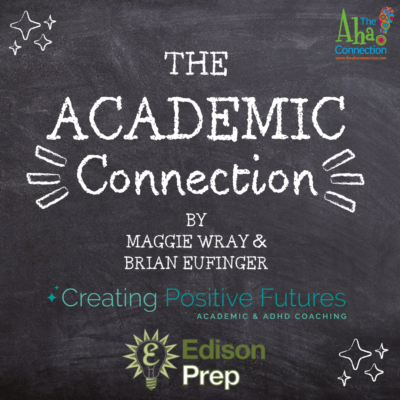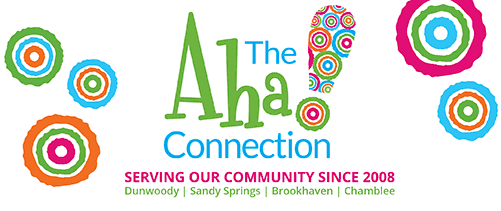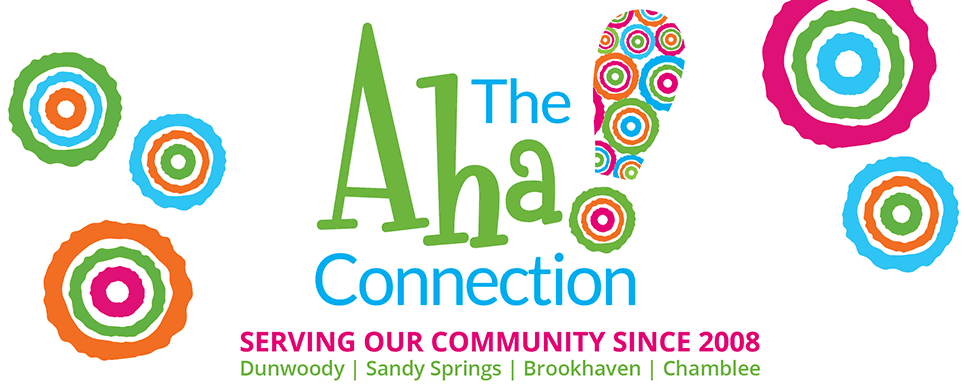 by Brian Eufinger of Edison Prep for The Aha! Connection
by Brian Eufinger of Edison Prep for The Aha! Connection
The Importance of Applying Early Action/Early Decision If You Can
With the Common App opening on August 1st, seniors are preparing applications for their list of colleges. Some applications were already sent in on Day 1. As a parent, you’re going to be hearing various lingo—Early Action, Early Decision, Regular Decision, Rolling Admissions—what does it all mean? Which route should my student take?
Let’s analyze the four main application types: Early Decision, Early Action, Rolling Admissions, and Regular Decision.
1) Early Decision (ED) – Students can apply to just one college via Early Decision, usually with a deadline in mid-October, and find out their admissions decision early, typically in December. Students sign a binding agreement to attend if admitted, and students are expected to not apply to any other colleges via ED. They can still apply to non-binding schools. A few schools will offer a second round (ED II) that some students who don’t get accepted to their initial ED will scramble and apply to.
Pros of Early Decision:
- Find out your decision earlier, avoiding the stress of long waits.
- Enhanced odds of admission (double or triple the odds of admissions at most schools is not uncommon; at Vanderbilt, it’s 15% Early Decision acceptance vs. 4% Regular Decision, and at Tulane, your odds are over 650% greater).
- Many top 50 schools or liberal arts schools will fill a majority of their seats via ED, leaving fewer seats for the regular round.
Cons of Early Decision:
- Students who need to compare financial aid offers are at a disadvantage. Colleges have no reason to offer the best financial aid packages to ED students who are bound to attend.
- Students who attempt to go back on the binding agreement can cause trouble for those applying from their school in future years.
- Some students may benefit from another semester of good grades and/or another chance to take the SAT/ACT before submitting, and they might not be able to do those before the ED deadline.
- Families need to be fully on board with the potential costs they’ll have at the ED school by running the net price calculators that most colleges have on their websites.
2) Early Action (EA) – Students can apply to many colleges via Early Action, not just one. Like Early Decision, EA applicants find out earlier, which is nice, and can reduce stress if a student has some early acceptances to choose between before the Regular Decision deadlines that occur in mid-Spring. A majority of the students that Edison Prep works with apply to a fair chunk of their schools via Early Action, and should.
Broadly speaking, unless your student needs another semester of good grades or another set of test scores, there are few downsides to Early Action. At most schools, we recommend students work hard to finalize their essays, their testing, and the rest of their materials in time for EA application deadlines, which are typically between Oct. 15 and Nov. 15. Some schools also have scholarship deadlines that mirror EA deadlines. Over the last decade or two, many schools have begun giving away a majority of their total spots via EA, making Regular Decision more ‘Irregular Decision’ these days.
Exception: There is one small subcategory of Early Action called “Single Choice Early Action” (SCEA) or Restrictive Early Action (REA) that a few schools offer. SCEA/REA have many of the facets of Early Decision (can only apply to one program, find out early), but you are not required to accept the offer if admitted. It allows a student to show a school that it is his/her #1 choice without the financial uncertainty of the aid offer. It’s a neat option!
3) Rolling Admissions – Rolling admissions is typically done at schools that are less competitive than schools that offer EA and ED. They usually have greater acceptance rates and students who apply as soon as the application opens can sometimes know their final admissions decision in just a few weeks. Unlike EA and ED, where there’s a fixed deadline and no incentive to apply earlier than that deadline, applications to rolling admissions schools should be done as early as feasible: in other words, as soon as applications begin, for a variety of reasons:
- Those who get in early can often get preferential treatment; the ability to deposit on housing earlier is one of those benefits, especially as housing crunches are very common across the nation.
- The school has more merit and scholarship money to give out earlier in the process, and larger awards are often given to those who apply earlier.
- Kids who can notch an initial win can change their tune and say “I’m going to college; now the question becomes which college.” Many well-built lists should ideally contain at least one rolling college. There’s less household stress for all when that first “yes” is obtained!
- These colleges can often serve double duty as one of a student’s “likely” schools (what our generation called “safety schools.”)
4) Regular Decision (RD) – Regular Decision requires less explanation than the other routes, since it is the original round that has always existed before the alphabet soup of EA/ED/SCEA/REA. Regular Decision has the latest deadlines and allows students to submit their scores much later in the year, with the majority of RD deadlines falling between January 1st and January 15th of senior year. Students then find out between late February and April 1st whether or not they got accepted.
Ultimately, you’ll see that the #1 reason to choose RD is if your student needs another semester to boost their GPA, another shot or two to retake the SAT/ACT, or—more commonly—a busy senior student with a fall sport who has trouble getting all of the essays and materials together in time for EA deadlines.
We at Edison Prep spend 99% of our time focused on SAT/ACT and academic tutoring, but if your sophomore/junior/senior needs references for college counseling advice, we’re happy to share our curated list of full time counselors that we’ve developed over the last 15 years. Just reach out at edison@edisonprep.com! And if your junior needs to start prepping for the SAT/ACT, or your senior needs one last shot at improving his or her scores before deadlines, we’re happy to help with that as well!
The Academic Connection:
Brian is the co-founder of Edison Prep, a Sandy Springs-based college prep company that works with students who are preparing for the SAT, ACT, and other standardized tests such as AP History, and who are navigating the process of both applying to and affording college.
Maggie is a Dunwoody resident and the founder of Creating Positive Futures, an academic coaching company that helps middle, high school, and college students earn better grades with less stress by developing the organization, time management, mindset, study strategies, and executive functioning skills they need to reach their goals.
We’re excited to share some helpful ideas and information with Aha! Readers, and hope you enjoy this new feature! If you ever have any questions or need additional support, please feel free to reach out to us directly using the contact information below and we’ll be happy to help.

















